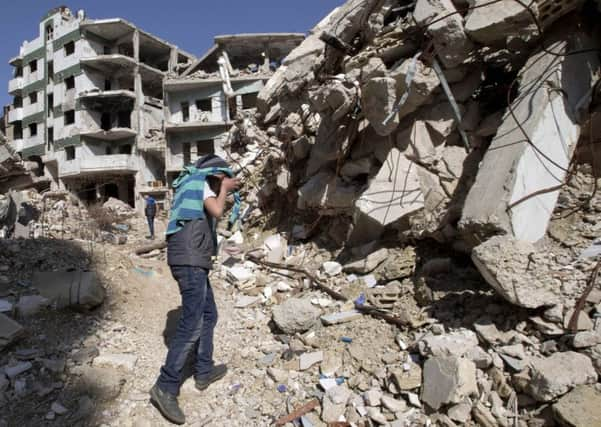Lack of aid to blame for current refugee crisis


Rob Williams, chief executive of War Child, also warned the flood of families fleeing will continue for another year unless the 11 billion US dollars (£7.7bn) pledged in aid by the international community arrives on the ground in the next three months.
He told the Press Association the failure to let refugees work, or to provide their children with school places, left families with little reason to stay in the region, driving them to make the perilous journey to Europe.
Advertisement
Hide AdAdvertisement
Hide AdHe said: “The question is was the movement of up to a million refugees towards Europe avoidable, and the answer is definitely yes.
“The problem is the aid effort has failed to do anything more than keep people alive.
“The recent conference in London got pledges from major donors of sufficient size that, if they all come through, will be enough money to provide a school place for every child who has had to leave their house and live in a refugee camp. Then we have a really good chance of recovering the lost generation. But unless the money does come through in the next two or three months, we are not just looking at this summer of refugees moving but next summer as well. It will be a further disaster.”
And, stressing that he was talking in a purely personal capacity and not for the charity, Mr Williams suggested that leaving the European Union could hinder future aid efforts.
Advertisement
Hide AdAdvertisement
Hide AdHe said: “Personally I think that coordinating with donors is really, really crucial and the failure of the aid programme in Syria is a really good example of how, if donors don’t agree a reasonable shared vision for what they are trying to do, then things will go badly wrong. And they have gone badly wrong in this Syrian crisis.
“The more distance we put between us and our colleagues and donor agencies in other countries in Europe, the more difficult it will be to really have a sensible aid response to the next crisis.”
Tomorrow will mark the fifth anniversary of the outbreak of the war in Syria, which has seen hundreds of thousands of people killed, towns reduced to rubble and millions displaced.
The chaos tossed up fuelled the rise of so-called Islamic State (IS) which now imposes a brutal rule over large parts of Syria and Iraq.